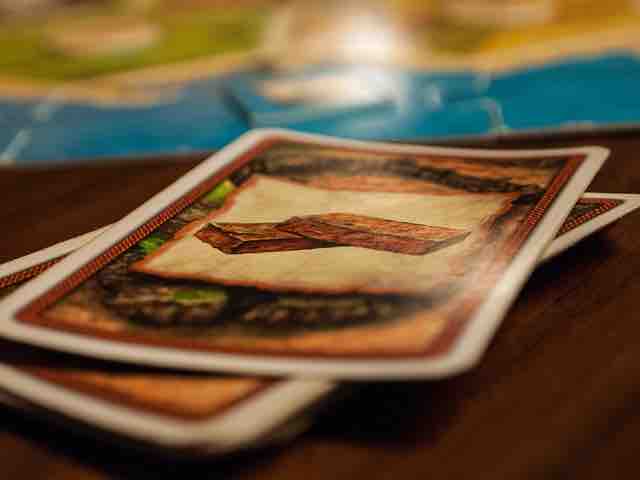Life has changed in so many ways since the pandemic began last March. In-person socialization has become taboo, and many of us are still trying to figure out how exactly we’re going to make it through the end of winter.
Fortunately, board games, old and new, can provide some respite when the weather outside is frightful, and it’s too dangerous to go over the river and through the woods to Grandmother’s house because she’s in like six different risk categories.
While some of these are more technically “card games” because they have no actual board, they fall into the same category of “diverting home activities that are guaranteed to start a fight at some point.”
1. Clue

An oldy but a goody. What better activity for people stuck in their house than to pretend to be characters who are stuck in someone else’s house? This is a great game for younger kids to learn how to assemble information strategically. For adults who have their Clue strategy down, games don’t take all that long, so it becomes more fun to play the game as a series of flash rounds as you try to ignore your brother’s wistful looks at the actual candlesticks on the table every time he loses.
2. Codenames
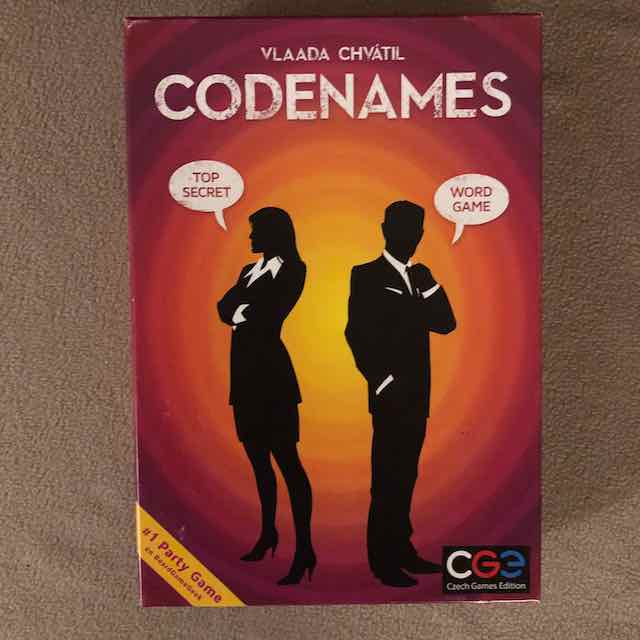
Codenames is one of the games that most easily converts to online play. You are given a 5×5 grid of cards, each with a random word on it. One player on each team is the “Spymaster” and gets to look at a “map,” which tells them which cards they need their team to guess in the fewest possible rounds. The Spymasters do this by grouping words together but can only use one word to group them (so if you had Poseidon, Shark, and Atlantis, you might say “ocean”).
Codenames tests both your ability to categorize words and your knowledge of your teammates. Whether played online or in-person, Codenames offers plenty of opportunities for misunderstandings and disappointment with your loved ones, which, after all, is kinda the point of board games, isn’t it?
3. Anomia
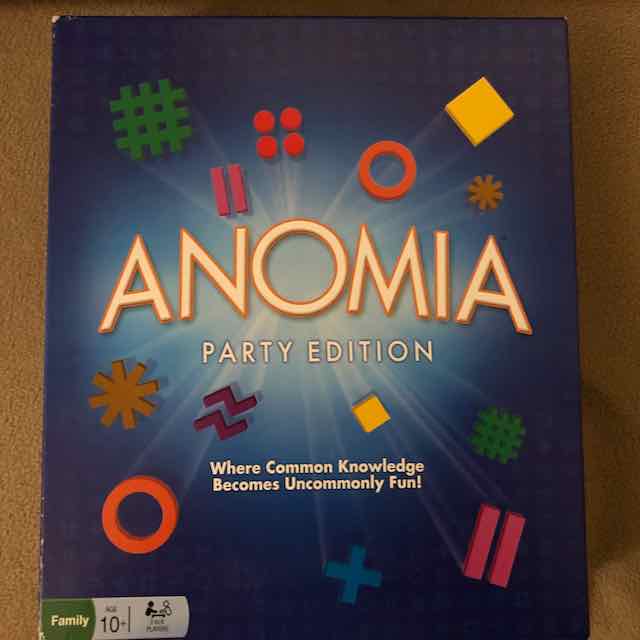
Anomia can really only be played in person, as it’s a fast-paced game that requires quick association between words. So it’s perfect when you’re ignoring your governor’s stay at home order to have Tom and Amanda over for dinner and drinks because you’ll go ballistic if you spend another second alone.
Each person has a pile of cards face up in front of them and pulls a card from the pile in the middle. If the design on the pulled card matches the design on the top card of any other player, then both players must immediately say a word in the category of the other person’s card. Make sense? I didn’t think so.
Say I pull a card that has a yellow square on it and says “Musician,” and your top card has a yellow square and says “1980s TV Show.” I would try to say “Miami Vice” before you manage to blurt out “Yo-Yo Ma.” Whoever says it first wins the other person’s card, and the person with the most cards when you finish the deck wins. This game is infuriating when you draw a blank (under pressure, it can be surprisingly hard to think of a “famous movie horse”), but every time you win it feels like pulling a jet fighter out of a dive at Mach 5. I routinely finish this game soaked in sweat, buzzing with adrenaline, and in a mild tiff with my wife.
4. Trivial Pursuit
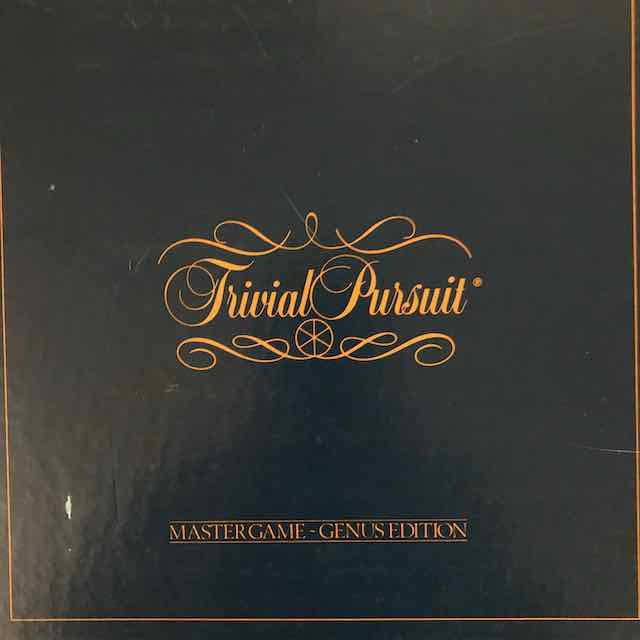
There are more editions of Trivial Pursuit than there are episodes of Game of Thrones, which means that your experience with this game is likely to vary. If you’re like my family, you believe that “the only version that counts is the first Genus edition,” Even if it means that people born after the end of the Cold War have to answer questions about “The Soviet Union” and “Czechoslovakia.”
Newer versions like the more recent “Classic Edition” (2016) have the same categories as “Genus,” but update the questions for players who don’t wax lyrical about where they were during the Bay of Pigs fiasco. Other editions are focused around particular topics or movies, whether Harry Potter, Lord of the Rings, or 80s and 90s pop culture. These always seem like a good idea, but in every group you’ll have someone who “doesn’t care about Hobbits” or “was too old to read Harry Potter.” Your options are to either burn these friends at the stake for their ignorance, or to pick an edition that includes more general knowledge (assuming that Harry Potter trivia is less “general knowledge” than “who built the Suez Canal?” or “when did William the Conqueror invade England?”).
There are ways to play online, but because game-play doesn’t depend on speed, you can easily play over zoom, so long as someone can set up a camera over a board and you trust your fellow players not to cheat. Trivial Pursuit ensures that even from across the country you can still make your sister cry because you yell at her for being “certain” that Lake Titicaca is in Chile, losing a pie piece and giving your asshole brother-in-law, Bruce a chance to win.
5. Settlers of Catan
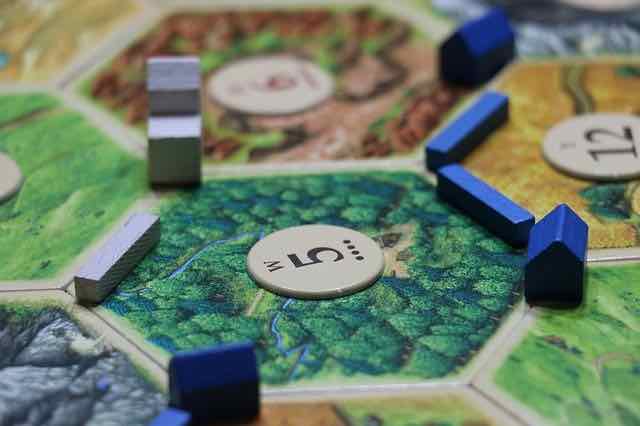
The ultimate board game in colonial expansion, from the European power that was eternally unsuccessful in its colonial aspirations. This Teutonic time-suck has you and up to three friends building roads, settlements, and cities all across an untouched island, full of valuable resources that you can cheerfully exploit without the worry that you’re degrading the natural environment or contributing to catanclysmic climate change (sorry). You’ll learn useful things about resource management, the inadvisability of trusting Terry to make a fair trade, and how easy it is to misinterpret statistics. After you’ve gone a full game WITHOUT A SINGLE FUCKING SIX BEING ROLLED you’ll begin to recognize that “statistical probability” does not mean “definitely gonna happen” (which will be exceedingly helpful when interpreting pre-election poll results for the rest of your life).
